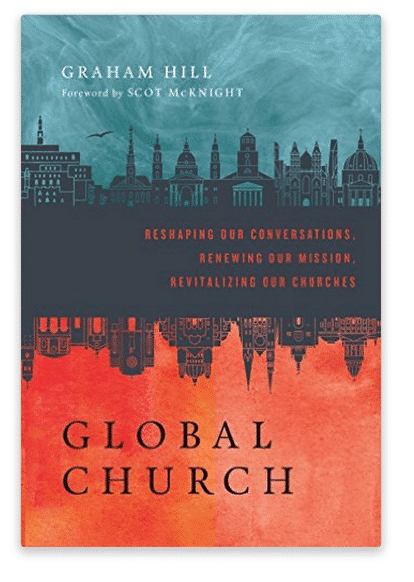Why Theological Education & Ministry Training Must Change
There are still more men than women studying theology and ministry in the U.S., but the increase in the percentage of women in all ethnic groups outpaced that of men.
Between 1990 and 2000:
• the enrollment of Asian men increased 90% and Asian women 169%
• the enrollment African American men increased 39% and African American women by 126%
• the enrollment of Hispanic men increased by 33% and Hispanic women by 74%
• the enrollment of Native American men increased by 36% and Native American women by 179%
And this increase in gender and ethnic diversification has gained even more momentum since 2000.
Here’s the challenge:
[bctt tweet=”How are theological schools responding to greater gender & ethnic diversity among students?” username=”GrahamJGHill”]
How are theological schools responding to the greater gender and ethnic diversity among students? ~ In their curriculum, reading lists, teaching methods, staff and faculty appointments, approaches to ministry training, and helping those who feel marginalized?
How are churches and denominations responding to the greater gender and ethnic diversity among the pool of candidates for critical leadership positions?
Instead of merely translating English theology texts into Spanish, Korean, or some other language, how are theological schools encouraging students to think theologically in their own language, and to write theology in their own language?
How is this all changing theological education and ministry training?
Or, are we just continuing “business as usual”?
Change will only happen when the makeup of faculty, staff, leadership teams, executive roles, and boards reflect the diversity of the student body (and the broader culture). As a friend once said to me, “How many female or non-Anglo members of leadership teams and executive boards do we have in Australian theological colleges? How many with educational qualifications earned this century?”
I’m optimistic about the future. But it will require significant changes at faculty, executive, and board levels. And it’ll also require major changes to curriculum, teaching approaches, reading lists, and more.
There’s much to be commended in Western educational institutions. But, as Western cultures diversify—and as women and a broad range of ethnicities fill our classrooms—our institutions need to change too. This is as true of educational institutions as it is of churches and denominations.
And we’re often blind to the colonialism, sexism, disembodiment, gender discrimination, and Euro-American biases built into our theological education and ministry training.
That doesn’t mean throwing the baby out with the bath water (or relinquishing quality approaches to education that currently exist). But it does mean allowing this rich diversity to challenge our current practices, our sense of identity, and the status quo. And it also means allowing this amazing diversity to further enhance and enrich our educational approaches, theological biases, leadership make-up, curriculum design, and more.
Quality education can and will and must be enriched by the unique contributions of all groups: female, male, “white”, African American, Asian American, Australian Aboriginal, Latin American, Native American, indigenous, and many more. And this diversity must be represented in the entire life of theological colleges and ministry training.
(Afternote: I’m reading Willie James Jennings’ “The Christian Imagination: Theology and the Origins of Race” at the moment, and having two experiences. (1) He’s blowing apart my understanding of the way colonialism, displacement, and notions of race have shaped Christian theology and social imagination. (2) He’s convincing me that my arguments for change (and my ideas for how we can pursue such change) are only scratching the surface. The book is a work of genius. It’s a difficult read, but everyone should read this book).
Graham Hill
Dr Graham Hill is the Founding Director of The GlobalChurch Project – www.theglobalchurchproject.com. He’s the author of “GlobalChurch: Reshaping Our Conversations, Renewing Our Mission, Revitalizing Our Churches” (IVP, 2016), and 3 other books.
© 2016 All rights reserved.
Copying and republishing this article on other Web sites, or in any other place, without written permission is prohibited.
Want to be mentored?
Books
Don’t forget to buy Graham Hill’s books, GlobalChurch and Salt, Light, and a City (second edition).


Comments: We’d love to hear your comments and reflections on this blog post!





